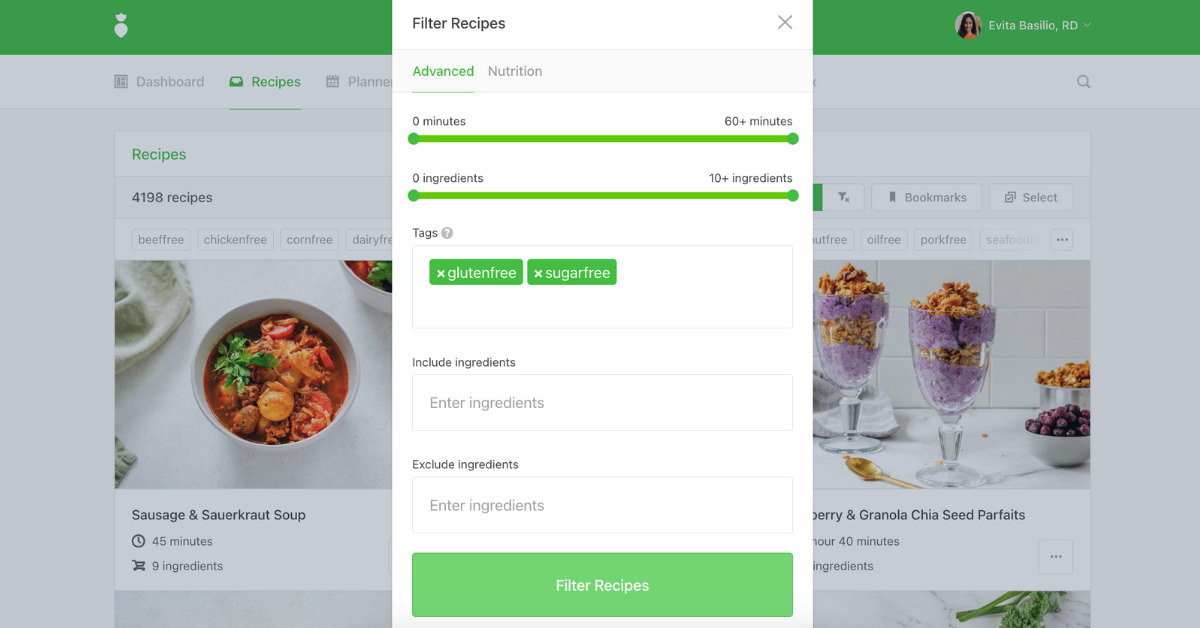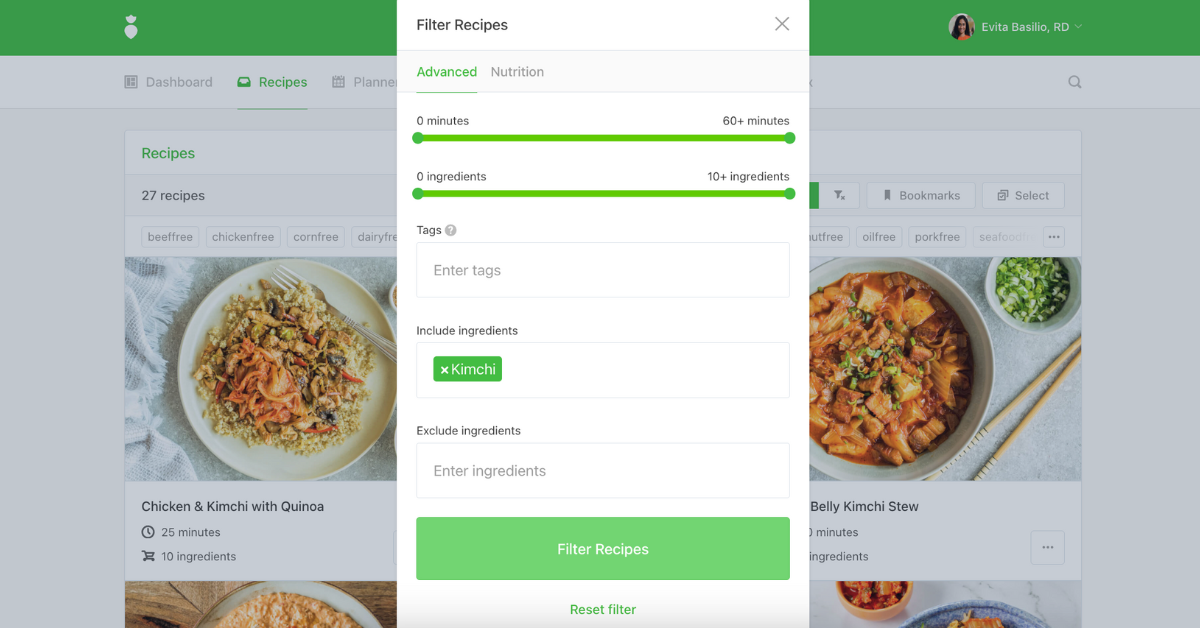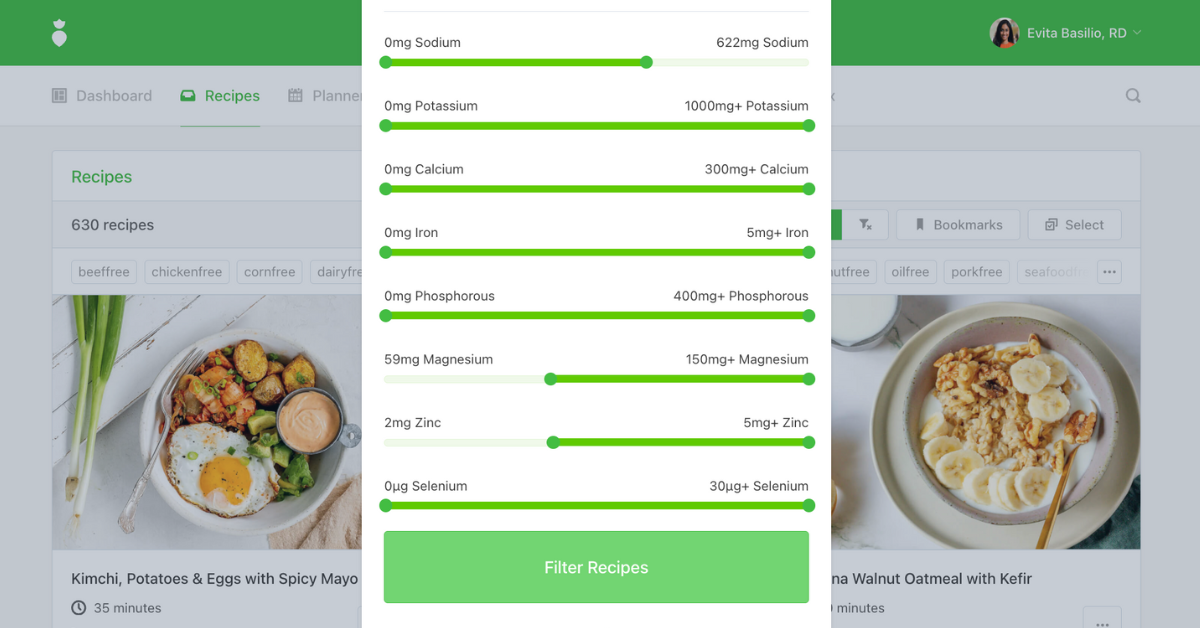In recent years, health and wellness practitioners have increasingly focused on gut health and its impact on overall well-being. At the center of this focus has been the concept of intestinal permeability, or leaky gut syndrome, a condition where the intestinal barrier becomes compromised, allowing harmful substances to enter the bloodstream.
Symptoms of intestinal permeability can range from digestive issues like bloating and irregular bowel movements to more complex health problems like chronic fatigue syndrome, skin conditions, and autoimmune disorders like rheumatoid arthritis.
Understanding the implications of intestinal permeability is important, as it can impact a wide range of conditions and symptoms beyond physical health. For example, research is beginning to shed light on the surprising link between gut and mental health through the two-way communication system known as the gut-brain axis.
The role of diet in managing intestinal permeability can't be overstated. A personalized, nutrient-rich diet can help support gut health, promote the healing of the intestinal lining, and reduce inflammation. Let’s explore the principles of the 4R Protocol to help restore gut integrity and improve health outcomes for your clients today.
The 4R Gut Healing Protocol Benefits
Following the 4R Gut Healing Protocol can improve digestion, reduce symptoms of the leaky gut syndrome, enhance nutrient absorption, and improve overall gut health, positively affecting your client's physical and mental well-being.
The 4R Gut Healing Protocol can benefit clients who have conditions associated with leaky gut, including:
- Chronic fatigue syndrome
- Inflammatory bowel disease
- Celiac disease
- Multiple Sclerosis
- Digestive disorders like gastritis and acid reflux
- Rheumatoid arthritis
- Type 1 diabetes
The Four-Step Protocol
The 4R Gut Healing Protocol addresses gut health in four simple steps: remove, replace, reinoculate, and repair.
Remove
The first step in the 4R Gut Healing Diet protocol is the "remove" phase. This is when you identify and eliminate potential triggers contributing to gut issues and inflammation.
This step may include removing inflammatory foods and drinks, including processed foods, refined sugars, gluten, dairy, saturated and trans fats, alcohol, and additives like emulsifiers and artificial flavors.
That Clean Life helps you navigate the first step of "remove" in the 4R Gut Healing Diet by making it easy to filter with tags like "gluten-free" and "sugar-free." That way, you can quickly identify and choose recipes that support gut health and align with your client’s specific dietary needs.

The "remove" phase can also address underlying infections or imbalances in the gut microbiome, such as small intestinal bacterial overgrowth (SIBO) or candida overgrowth, through targeted treatments or dietary changes emphasizing gut nutrition. Removing these triggers can help reduce inflammation, alleviate symptoms, and create a healthier environment for gut healing.
Replace
The "replace" phase involves replacing pro-inflammatory foods with anti-inflammatory, nutrient-rich foods that support digestion and promote gut health.
This includes incorporating the following anti-inflammatory foods for optimal gut nutrition:
- High-fiber foods like fresh fruits and vegetables and whole grains like quinoa, brown rice, oats, barley, and buckwheat
- Lean protein like fish, eggs, legumes, tofu, and poultry
- Healthy fats like avocado, olive oil, and nuts
- Probiotic-rich foods like yogurt, kefir, sauerkraut, kimchi, miso, and kombucha
- Herbs and spices like turmeric, ginger, garlic, cinnamon, and peppermint
These unprocessed, nutrient-dense foods provide the body with the necessary building blocks for improved digestive health and help replenish beneficial bacteria in the gut. Optimal gut nutrition can support the repair and healing of the gut lining, reduce inflammation, and promote overall gut health and well-being.

Reinoculate
The third step of the 4R Gut Healing Diet is the "reinoculate" phase. This phase focuses on replenishing the gut microbiome with beneficial bacteria through the intake of probiotics.
Probiotics are live microorganisms that provide health benefits when consumed in adequate amounts. These beneficial bacteria help restore balance to the gut microbiome, promoting gut health, immune function, and overall well-being.
In this reinoculate phase, you might consider introducing probiotic-rich foods like yogurt, kefir, sauerkraut, kimchi, miso, tempeh, and kombucha.
To help you include more probiotic-rich foods in a diet, That Clean Life provides an "include ingredients" filter for fermented soy products, dairy, and vegetables to help people in the reinoculation phase.

Repair
In the fourth step of the "repair" phase of the 4R Gut Healing Diet, the primary goal is to support the repair and restoration of the intestinal lining to help prevent intestinal permeability.
This involves addressing inflammation, healing damage to the intestinal walls, and strengthening the integrity of the gut lining to prevent further permeability issues. Key dietary strategies include incorporating nutrient-rich foods that provide essential building blocks for tissue repair and healing.
You might include the following nutrients and herbs in the repair phase: Omega-3 fatty acids, bone broth, aloe vera, zinc, vitamin D, vitamin A, L-Glutamine, curcumin, marshmallow root, and licorice root.
Learn more about supplements that support gut healing.
That Clean Life also has filters that help you search for recipes based on specific nutrients, so you can narrow down recipe options to those that contain, for example, zinc-rich ingredients to support the repair phase of the 4R gut healing diet.

The new 4R Gut Healing Diet and Plant-Based 4R Gut Healing Diet offered by That Clean Life can help you incorporate the 4Rs into meal plans for your clients following the 4R Gut Healing Protocol.
By customizing meal plans according to each protocol phase and providing varied recipe options, you can help your clients optimize their gut health and overall well-being.
Lifestyle Considerations for Better Digestive Health
While diet plays a significant role in gut health, lifestyle factors can also help support optimal digestion. Lifestyle considerations can positively impact digestive health, including sleep, alcohol intake, smoking, and stress management.
Sleep
Adequate sleep is essential for digestive health, as it allows your body to rest and repair. Poor sleep habits, like irregular sleep patterns or a lack of sleep, can disrupt your body's natural rhythms and negatively impact your digestive system.
Research has shown that sleep disturbances are associated with an increased risk of digestive symptoms and gastrointestinal disorders such as irritable bowel syndrome (IBS) and gastroesophageal reflux disease (GERD).
Aim for 7-9 hours of quality sleep each night to promote better digestive health, establish a consistent sleep schedule, and create a relaxing bedtime routine to help improve sleep quality.
Alcohol
Excessive alcohol use can negatively impact your digestive health. Alcohol irritates the gastrointestinal tract, leading to inflammation and damage to the mucosal lining of the stomach and intestines, leading to intestinal permeability. This can result in symptoms like acid reflux, gastritis, and peptic ulcers.
Alcohol also disrupts the balance of beneficial bacteria in the gut microbiome, contributing to digestive issues. To support digestive health, limit alcohol intake to moderate levels, which is defined as up to one drink a day for women and up to two drinks a day for men.
Tip: Use the "drink" or "smoothie" filter in That Clean Life to find fun and hydrating non-alcoholic recipes.

Smoking
Smoking is a significant risk factor for digestive disorders and can also aggravate existing gastrointestinal issues. Tobacco smoke contains harmful chemicals that can damage the digestive tract, increase inflammation, and impair blood flow to your digestive organs.
Studies have found that smoking is strongly associated with an increased risk of developing conditions such as peptic ulcers, Crohn's disease, and colorectal cancer. Quitting smoking is essential for improving gut health and reducing the risk of gastrointestinal issues. If you’re going to quit smoking, it’s important to seek support from healthcare professionals or use smoking cessation programs for long-term success.
Stress
Believe it or not, chronic stress can wreak havoc on your gut health. This is due to the two-way communication network known as the gut-brain axis, which links your central nervous system (brain and spinal cord) with your enteric nervous system (gut).
Acute stress activates your sympathetic nervous system, leading to gut motility, blood flow, and immune response changes. This can result in symptoms like abdominal pain, bloating, diarrhea, and constipation.
To manage stress and better support your digestive health, try incorporating stress-reduction techniques into your routine. These could be mindfulness meditation, deep breathing exercises, yoga, or any type of relaxing activity that helps you decompress.
The Bottom Line
Providing clients with the 4R Gut Healing Diet protocol can help manage symptoms of increased intestinal permeability and promote overall gut health. By addressing underlying issues like inflammation, bacteria imbalances, and gut lining damage through the remove, replace, reinoculate, and repair phases, your clients can experience relief from a wide range of symptoms such as bloating, gas, abdominal discomfort, and food sensitivities.
That Clean Life offers a user-friendly platform that simplifies creating personalized nutrition plans using the 4R Gut Healing Protocol.
Each template includes a 7-day customizable meal plan, an itemized shopping list, diverse recipe options, a prep guide, AI Health Insights, and supporting evidence to help you guide clients on their journey to improved gut health.
Check out Practice Better to see how mental health and nutrition professionals support clients with an all-in-one practice management and EHR solution.
Watch our demo today to discover how That Clean Life can streamline your practice and help your clients achieve optimal well-being through the 4R Gut Healing Protocol.

